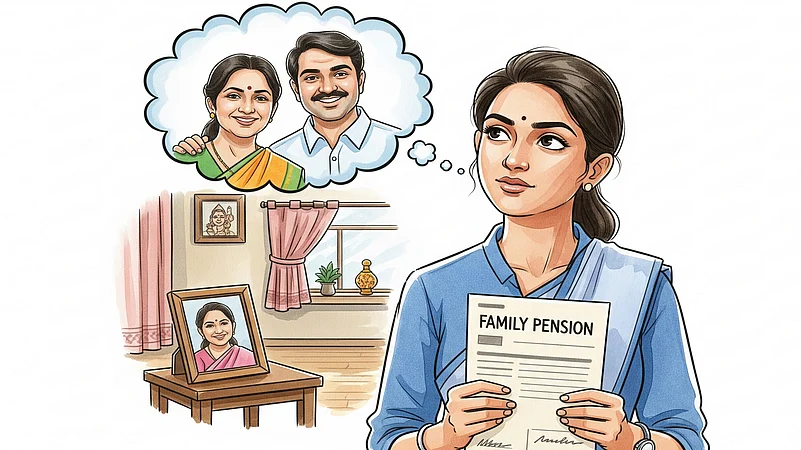
Summary of this article
· Divorced daughters are eligible for family pension under Central Civil Service (Pension) Rules, 2021
· Eligibility criteria includes dependency status
· Eligible family members for family pension include wife, husband, son, daughter, parents, and disabled siblings
Does our law entitle divorced daughters to receive a family pension? A family pension is a periodic payment to the surviving family member of a deceased pensioner. When a pensioner dies, a family pension is paid to the eligible surviving member to provide financial security. Typically, it is paid to the spouse, dependent children, and parents. However, the question is whether a divorced daughter who is not financially independent is eligible for a family pension. On the question of the financial security of divorced daughters of government employees, asked by parliamentarian Anil Firojiya and Alok Sharma, in Lok Sabha on August 20, 2025, the Minister of State in the Ministry of Personnel, Public Grievances and Pensions, Jitendra Singh, explained the rules under which divorced and widowed daughters are eligible for family pension.
The Minister said in the written reply, “Department of Pension and Pensioners’ Welfare (DoPPW) has notified the Central Civil Service (Pension) Rules, 2021. Various provisions have been incorporated in these rules and in the Office Memorandum No. F. No.1/1(1)/2022-P&PW(E) dated 26.10.2022 issued subsequently to ensure that a divorced/widowed daughter of a deceased Government employee or pensioner covered under these rules gets family pension on her turn.”
Notably, Rule 50(15) of the Central Civil Service (Pension) Rules, 2021, stipulates that when government servants join service, they are required to fill up Form 4, providing details of their family and submit the form to the Head of Office. The form includes all relevant details relating to the following family members, including whether they are eligible for a family pension or not.
They include wife or husband, son or daughter (whether eligible or not for family pension on the date of submission of the relevant form, details of all children, parents, and disabled siblings. In case of a change in the family structure in the future, like a change in the size of the family, marriage of child/ren, etc., the government employee needs to inform the head of the office.
Regarding the coverage of divorced daughters for family pension, the Minister replied, “Where a deceased Government employee or pensioner is not survived by a spouse or son or daughter eligible for family pension or if they die or cease to fulfil the eligibility conditions for family pension prescribed in the above mentioned rules and there is no disabled child eligible to receive family pension, the family pension shall be granted or continued to be payable to an unmarried or widowed or divorced daughter beyond the age of twenty-five years for life or until she gets married or re-married or until she starts earning her livelihood, whichever is the earliest subject to the conditions like the unmarried or widowed or divorced daughter was dependent on her parent or parents when he or she or they were alive.”
For a widowed daughter, the reply read, “In the case of a widowed daughter, death of her husband, and in the case of a divorced daughter, her divorce took place or the divorce proceedings filed in a competent court during the lifetime of the Government servant or pensioner or his or her spouse.
So, if the divorced or widowed daughters were dependent on their parents and the death of the daughter’s husband or their divorce proceedings started when the government servant or pensioner or his/her spouse was alive, it would be covered for family pension.


















